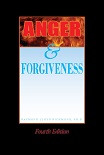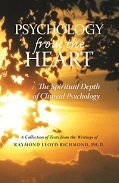|
|
|

I came
across your website in searching for a Catholic guided imagery relaxation CD. From what
I experienced, I was touched by the help yours offers. And I appreciate it.
I tried to order it; however, I am not comfortable in ordering through PayPal.
Additionally, I wanted to help you be aware that Ebay (parent company of PayPal),
financially supports Planned Parenthood. It is also on a Boycott list of
companies who financially support Planned Parenthood.
Would you consider not using PayPal? I know this may be an inconvenience, but
I hope you will consider it.
 |
 his is an important issue for any
Christian living in a generally immoral society, and it’s as important today as it
was in the past. Years ago, when I was a theology student, I remember reading about
a problem that came up for the Church fathers in the early Church. A man who made pagan
idols as a tinsmith wanted to convert to Christianity, but he fully intended
to continue pursuing his craft—making pagan idols—as a Christian. But his
Church told him that to be a Christian he had to stop making idols, regardless
of the financial hardship. his is an important issue for any
Christian living in a generally immoral society, and it’s as important today as it
was in the past. Years ago, when I was a theology student, I remember reading about
a problem that came up for the Church fathers in the early Church. A man who made pagan
idols as a tinsmith wanted to convert to Christianity, but he fully intended
to continue pursuing his craft—making pagan idols—as a Christian. But his
Church told him that to be a Christian he had to stop making idols, regardless
of the financial hardship.
Now, for the tinsmith the matter was clear,
as much as he didn’t like it: it would be a sin for him to call himself a Christian
and continue making idols. But consider the problem from another perspective. Would it
be a sin for a Christian to buy some kitchen items from a non-Christian tinsmith if the
tinsmith also made pagan idols as part of his business? Or bring the question up to date:
is it a sin for a Catholic to buy medicine from a pharmacy that also sells contraceptive
products?
Complication and Confusion
Notice that things can get very complicated
if we aren’t careful to identify the psychological core of the problem: What does
it mean to “support” immoral activity? Donating money is one form of support,
but providing services is another form of support.
So is it a sin
for you to have a checking account or credit card with a bank that provides financial
services to a business that conducts abortions? Isn’t that bank aiding and abetting
abortion indirectly through its financial services? Is it a sin for me to send packages
through the post office if the post office also delivers mail that aids abortion services?
Is it a sin for me to buy office supplies from a company that might also sell office supplies
to a business that provides abortion services? Is it a sin for a Catholic to buy telephone
service, or utilities, or groceries—or anything—from a company that also provides
services to businesses that engage in any immoral activity?
|
Someone may take satisfaction
in a boycott list, but it’s quite likely that the manufacturer of the car he drives
advertises lavishly in gay advocacy and liberal political magazines. What about
that? |
|
Clearly, in today’s world the dirty net
of immorality in business and financial interactions stretches over almost everything. So
where do we draw the line of sanity in regard to not personally supporting
immorality?
The Moral Issue
Well, the moral issue underlying all the above
questions relates to a business’ primary identity. If a store’s purpose is to sell clothing,
for example, it would not be a sin to do business there, even if the store sold some items
of immodest clothing, because you have the personal freedom to refuse to buy the immoral
articles. (If, however, the store’s primary purpose were to sell or provide erotic clothing
and articles, for example, then it would be a sin to do business there, even if it sold a few
legitimate items, because the primary focus of the business is on immorality.) Therefore, even
if a company not primarily engaged in immoral activity were to favor political support for
immoral activity, you would not be morally culpable for doing business there because you’re
not personally responsible for the activity of others that you cannot control during the course
of your legitimate business with them.
It’s More Than
Abortion
This matter of personal responsibility brings
us to the question of what anyone can do to avoid immorality in the world. And it brings us
to the truth that resisting abortion is not the core element of Catholic identity.
|
Women have marched in the
Walk for Life, and then they have gone home and posted photos of the march on Facebook.
What are they thinking? Don’t they realize that the fundamental purpose of the
“inclusivity” mindset of social media is to idealize the narcissistic illusions
of “self”, to make social approval the holy
grail of modern life, and to indoctrinate society with the pernicious belief that
sexual activity is a social right? And where does that
lead? To sexual perversions, to promiscuity, to a breakdown in
family values, to unwanted children, and to more
abortions. |
|
The core element of
Catholic identity is chaste love,
and the core task of Catholic life is to resist the demonic temptations
that would draw us away from a chaste and pure love in our personal
lives. There are more things than abortion to fight because there are more things than
abortion that lead us into a multitude of sins.
Many Catholics say they go to
Mass on Sundays, pray the Rosary, and are pro-life. But what about
the anti-Christian ideology of popular entertainment and
advertising that infects their hearts? What about the idolization of celebrities that infects
their hearts? What about the pride, competition, and violence of sports
that infect their hearts? What about the immodesty and
lust that infect their hearts? Where is their
faith?
|
It’s not hard to find
a priest who will speak about the evil of abortion. But it would be astonishing yet
refreshing if a priest were to look out at his congregation one Sunday, point to the
people, and say, “Where is your faith? Most of you are dressed like bums and
prostitutes!” |
|
Missing the Point
As grave a sin that it is,
abortion is only one of many attacks by the
devil on the Church today. Yet, in the average parish, this
point is missed day after day.
• |
How many priests preach about
chastity
as the core aspect of Catholic identity? |
|
• |
How many priests preach about
modesty as a core virtue in Catholic identity? |
|
• |
How many priests preach about the evils
of popular entertainment, social media, and competitive
sports? |
|
• |
How many priests preach about
demonic influence and the growing need for bishop-appointed
exorcists to provide deliverance prayer and exorcism? |
|
• |
How many priests preach about the evil of
divorce and remarriage? |
|
• |
How many priests preach about the growing
crisis of falling families and fallen children? |
|
How many priests preach about these things? Well,
hardly any. It’s far easier, and safer, to preach against abortion and then head for
the coffee and donuts. And that’s why we’re in the mess we’re in.
The Way of Protection
We’re in a mess, and it’s only going
to get worse. The coming apostasy will snatch
you up and sweep you away unless you remain faithful to traditional Catholic dogma and
put your trust in the Immaculate Heart of Mary.
Protesting PayPal
is just a way to attempt to control what others do—and all the frustrations of trying
to control others lead right to anxiety. If you want to avoid PayPal
and Ebay privately, that’s your prerogative. But be consistent. Other things (such as
social media, television, movies, competitive sports, popular magazines, popular music, video
games—and even “altar girls”) cause more immediate damage because their
underlying ideology of inclusivity works to corrupt your mind and heart and abort the true
faith.
The real Catholic task is for Catholics to stop
telling others what to do and to purify their own lives. The future of the Church depends on
our resolving to let the faith cut deeply into our hearts such
that in every aspect of our being, and with every breath we take, we live a true and
compassionate Catholic identity in the
great spiritual battle against evil.


Healing
|
Though
Demons
Gloat
|
Anger
&
Forgiveness
|
Falling Families,
Fallen Children
|
Disasters
and
Trauma
|
Psychology
from the
Heart
|
 |
 |
 |
 |
 |
 |
Psychological healing
in the Catholic mystic tradition |
True Christian
Identity
In Confronting
Evil |
How to turn the
emotional wounds
of daily life into
psychological growth. |
The psychological
and
spiritual remedy
for our cultural
disintegration |
The psychological
and spiritual battle
against
evil |
Collected texts
about the spiritual depth of
clinical psychology |
More information |
More information |
More information |
More information |
More information |
More information |
|









